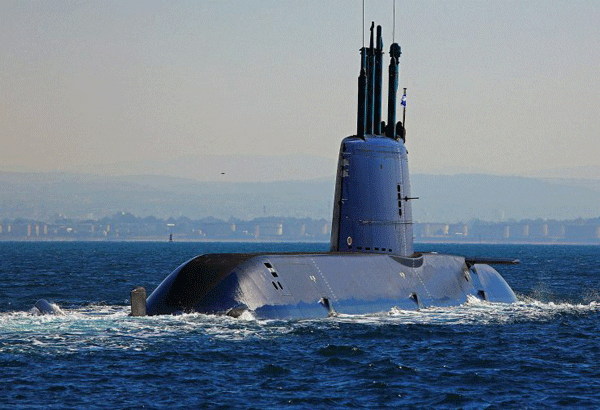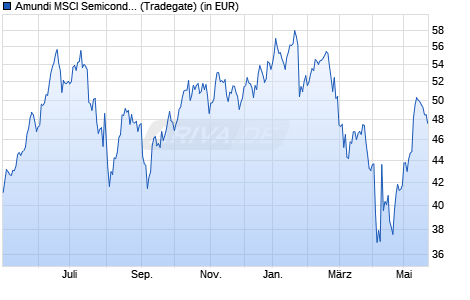2002 Submarine Bribery Case: French Prosecutors Accuse Malaysia's Former PM Najib

Table of Contents
The 2002 Submarine Bribery Case continues to cast a long shadow over Malaysian politics, with recent accusations from French prosecutors reigniting the controversy surrounding former Prime Minister Najib Razak. This complex case, involving alleged bribes related to the purchase of submarines, highlights the intricate web of international corruption and its far-reaching consequences. This article delves into the key aspects of this significant case and its implications.
<h2>The Allegations: What Did French Prosecutors Accuse Najib Of?</h2>
French prosecutors have leveled serious accusations against Najib Razak in connection with the controversial 2002 submarine deal. The allegations center on significant bribes allegedly paid to secure the contract for the purchase of Scorpène-class submarines from the French company DCNS (now Naval Group). This bribery scandal has rocked Malaysian politics and sparked international investigations.
- Alleged bribes paid to secure the submarine contract: The accusations involve substantial sums of money allegedly channeled to secure the deal for Malaysia.
- Specific amounts involved: While precise figures remain subject to ongoing investigations and legal proceedings, reports suggest the amounts are in the tens or even hundreds of millions of dollars.
- Roles of various individuals and companies: The alleged bribery scheme reportedly involved several individuals and companies, both Malaysian and French, with investigations underway to uncover the full extent of their involvement.
- Type of submarines involved: The submarines at the heart of this controversy are the Scorpène-class submarines, known for their advanced capabilities.
The alleged bribery scheme involved the payment of significant kickbacks to secure the Scorpène submarine contract. Investigations are attempting to trace the flow of money, identifying who received the bribes and how the funds were allegedly laundered through complex financial transactions, a hallmark of many international bribery scandals. The case highlights the challenge of prosecuting complex cases of international corruption involving multiple jurisdictions. French prosecutors' investigation into this Malaysian bribery scandal has significant implications for the fight against international corruption involving high-profile individuals and multinational corporations.
<h2>The Context: Malaysia's Submarine Acquisition and its Political Ramifications</h2>
Malaysia's acquisition of submarines in 2002 was presented as a crucial move to enhance national security and bolster its naval capabilities. However, the 2002 Submarine Bribery Case has tarnished this strategic initiative, revealing potential corruption at the highest levels of government.
- Strategic rationale behind the purchase: The official justification for the purchase emphasized enhancing Malaysia's defense capabilities and protecting its maritime interests.
- Involved companies: DCNS (now Naval Group), the French defense contractor, was the primary company involved in the deal.
- Overall cost of the deal: The total cost of the submarine acquisition was substantial, adding to the gravity of the alleged corruption involved.
- Political climate in Malaysia at the time: The political climate during the 2002 submarine deal was characterized by [insert relevant details about Malaysian politics at that time].
The political ramifications of this scandal are profound. The allegations against Najib Razak have significantly damaged his reputation and contributed to ongoing political instability in Malaysia. The case underscores the deep-rooted problem of political corruption and its detrimental effects on national security and defense procurement. The scandal serves as a stark reminder of the potential for misuse of public funds in large-scale defense contracts and the need for robust oversight mechanisms.
<h2>The Ongoing Investigation: Legal Proceedings and International Cooperation</h2>
The legal proceedings related to the 2002 Submarine Bribery Case are ongoing, both in France and potentially in Malaysia. International cooperation is crucial for successfully prosecuting such complex cases.
- Formal charges against Najib Razak: [Update on whether Najib Razak has been formally charged and in which jurisdiction].
- Involvement of international agencies: Interpol and other international agencies may be involved in assisting with investigations and potential extraditions.
- Ongoing investigations in France and Malaysia: Multiple investigations are underway in both countries to gather evidence and build a strong case.
- Potential extraditions or legal collaborations: International legal cooperation will be vital for bringing those responsible to justice.
The complexity of prosecuting international corruption cases is undeniable. Challenges include gathering evidence across multiple jurisdictions, navigating differing legal systems, and overcoming potential political obstacles. The success of the investigation hinges on effective international cooperation and a commitment to pursuing justice despite the political sensitivities involved. The ongoing legal battles and international collaborations highlight the difficulties in investigating and prosecuting complex cases of international corruption, particularly where high-ranking officials are involved.
<h3>Key Players Involved</h3>
The 2002 Submarine Bribery Case involves several key players, including Najib Razak, other high-ranking Malaysian officials, and representatives from DCNS (now Naval Group). Identifying and prosecuting all those involved is a major challenge for investigators.
<h3>Potential Outcomes and Implications</h3>
The potential outcomes of the ongoing investigations are far-reaching. The case could lead to significant convictions and potentially impact Malaysia's political landscape and international relations. A strong outcome could send a powerful message about the international community's commitment to fighting corruption. Conversely, a less successful outcome could have negative implications for future anti-corruption efforts and international trust.
<h2>Conclusion</h2>
The 2002 Submarine Bribery Case represents a significant test of international cooperation in combating corruption. The allegations against Najib Razak, centering on alleged bribes related to the Scorpène submarine deal, highlight the insidious nature of international corruption and its devastating impact on nations. The ongoing investigations, involving both French and Malaysian authorities, underscore the complexities of prosecuting such cases across borders. The outcome of this case will have profound implications for Malaysia's political landscape and international relations, shaping future efforts to combat corruption on a global scale. Stay informed about the developments in the 2002 Submarine Bribery Case and the fight against corruption by following reputable news sources and engaging in informed discussions. Understanding this case is crucial for comprehending the challenges of tackling international corruption and the importance of transparency in defense procurement.

Featured Posts
-
 I Miliardari Piu Potenti Del 2025 La Classifica Forbes Aggiornata
May 24, 2025
I Miliardari Piu Potenti Del 2025 La Classifica Forbes Aggiornata
May 24, 2025 -
 Porsche Macan Buyers Guide Everything You Need To Know
May 24, 2025
Porsche Macan Buyers Guide Everything You Need To Know
May 24, 2025 -
 Understanding The Amundi Msci World Catholic Principles Ucits Etf Acc Net Asset Value
May 24, 2025
Understanding The Amundi Msci World Catholic Principles Ucits Etf Acc Net Asset Value
May 24, 2025 -
 Camunda Con 2025 Amsterdam Orchestration For Maximizing Ai And Automation Investments
May 24, 2025
Camunda Con 2025 Amsterdam Orchestration For Maximizing Ai And Automation Investments
May 24, 2025 -
 Madrid Open Andreescu Secures Second Round Victory
May 24, 2025
Madrid Open Andreescu Secures Second Round Victory
May 24, 2025
Latest Posts
-
 Andreescu Wins Second Round Match At Madrid Open
May 24, 2025
Andreescu Wins Second Round Match At Madrid Open
May 24, 2025 -
 Madrid Open Andreescu Secures Second Round Victory
May 24, 2025
Madrid Open Andreescu Secures Second Round Victory
May 24, 2025 -
 Bianca Andreescu Cruises To Madrid Open Round Two
May 24, 2025
Bianca Andreescu Cruises To Madrid Open Round Two
May 24, 2025 -
 Uspekh Kazakhstana Tretiy Vykhod V Final Kubka Billi Dzhin King
May 24, 2025
Uspekh Kazakhstana Tretiy Vykhod V Final Kubka Billi Dzhin King
May 24, 2025 -
 Kubok Billi Dzhin King Kazakhstan V Finale
May 24, 2025
Kubok Billi Dzhin King Kazakhstan V Finale
May 24, 2025
